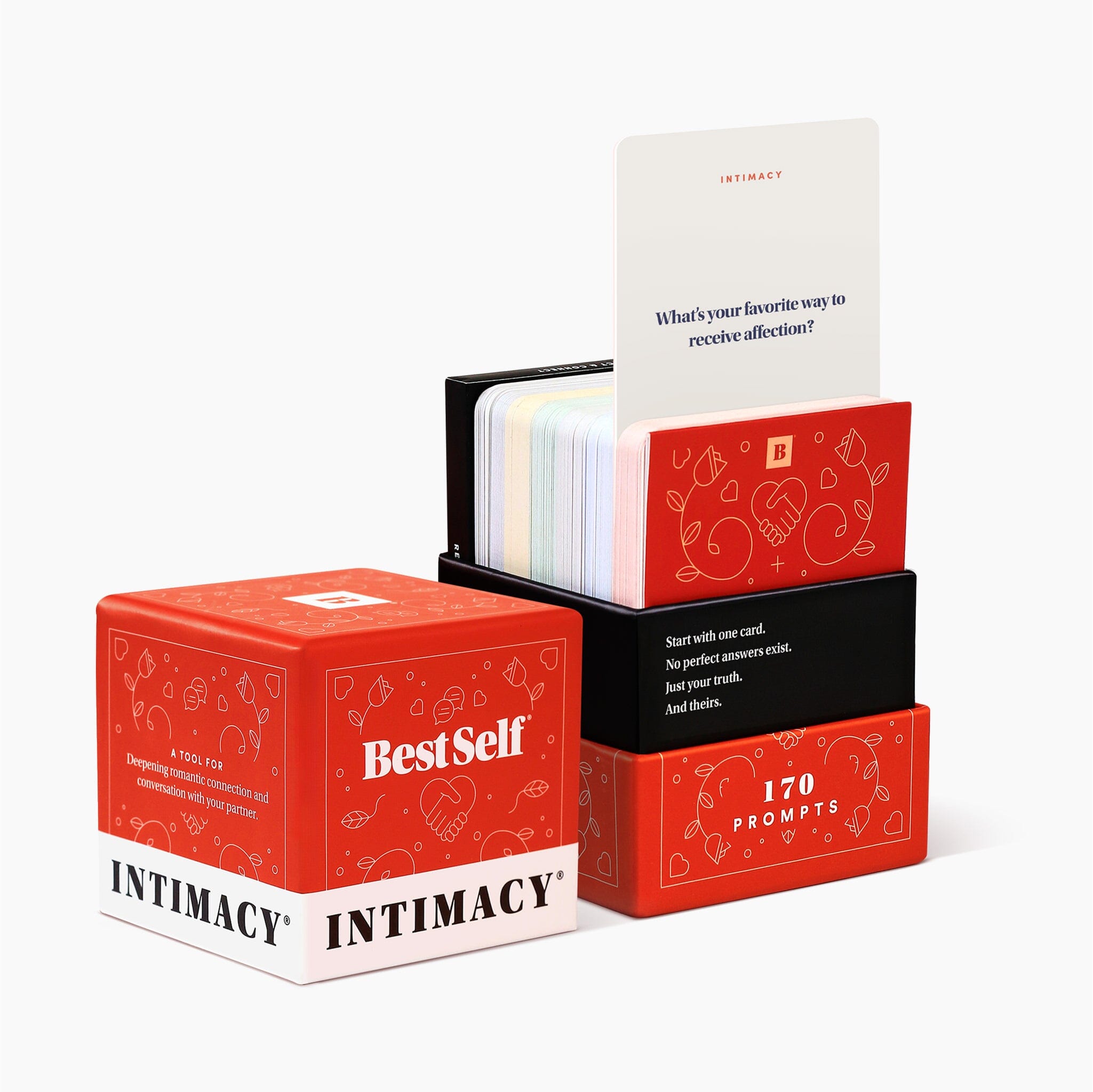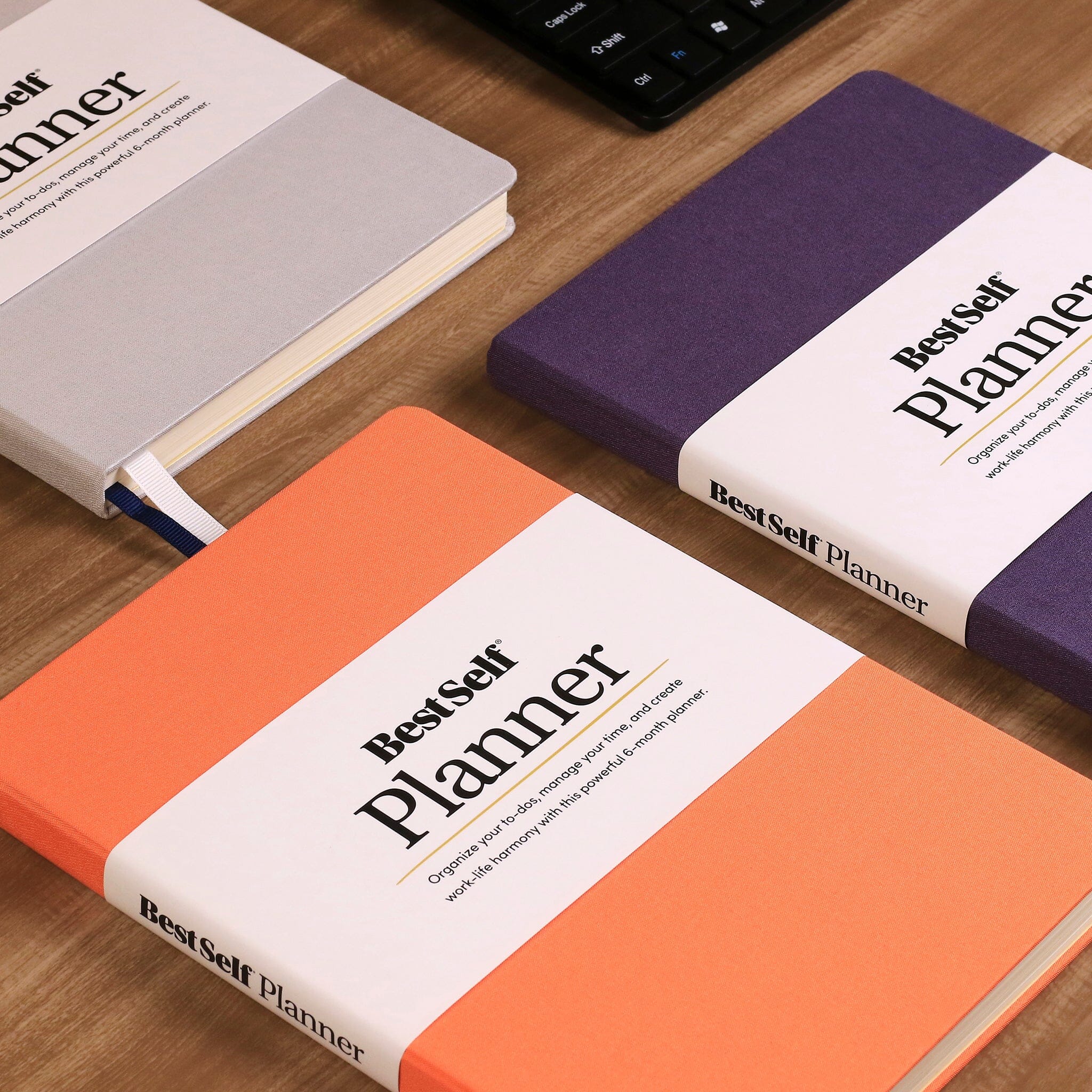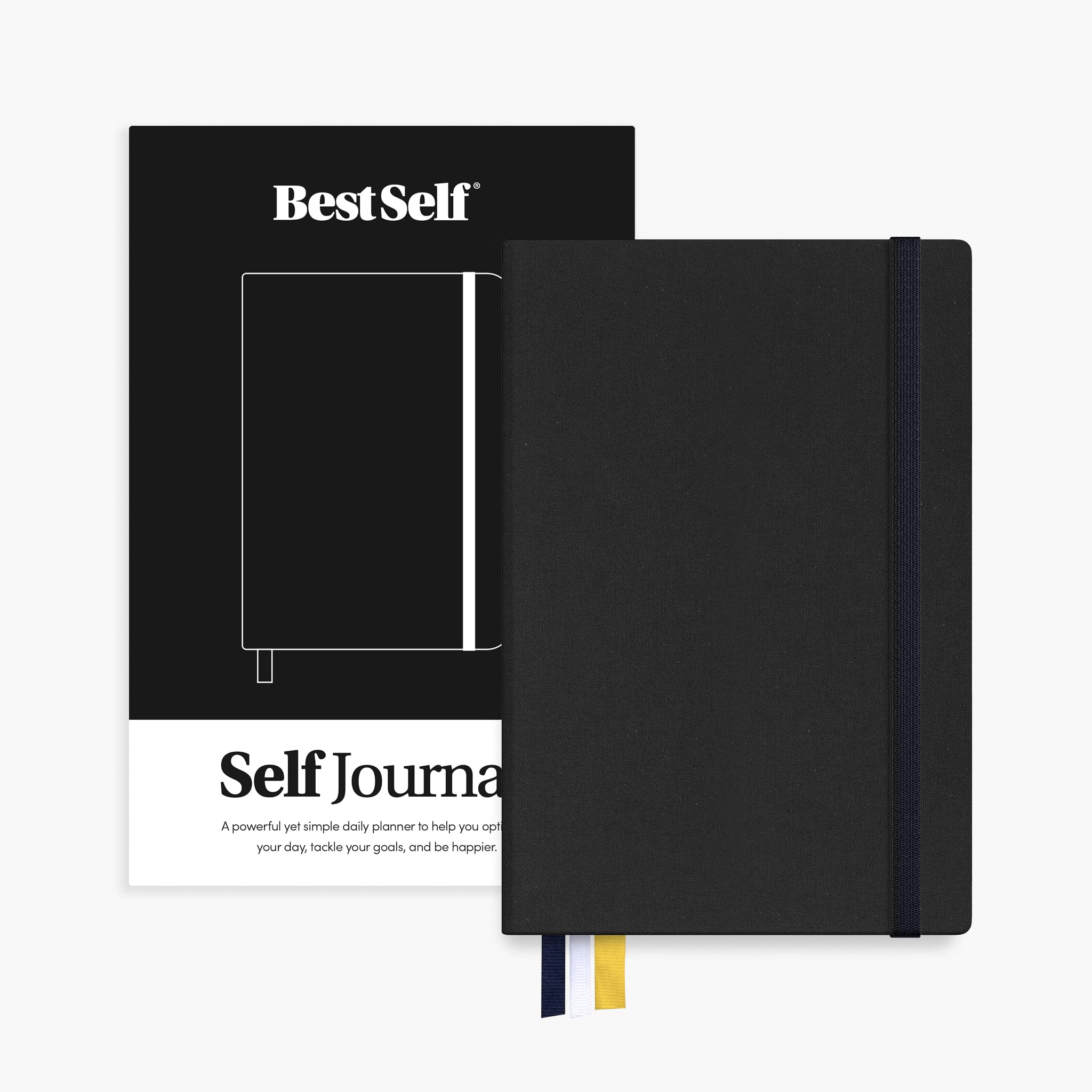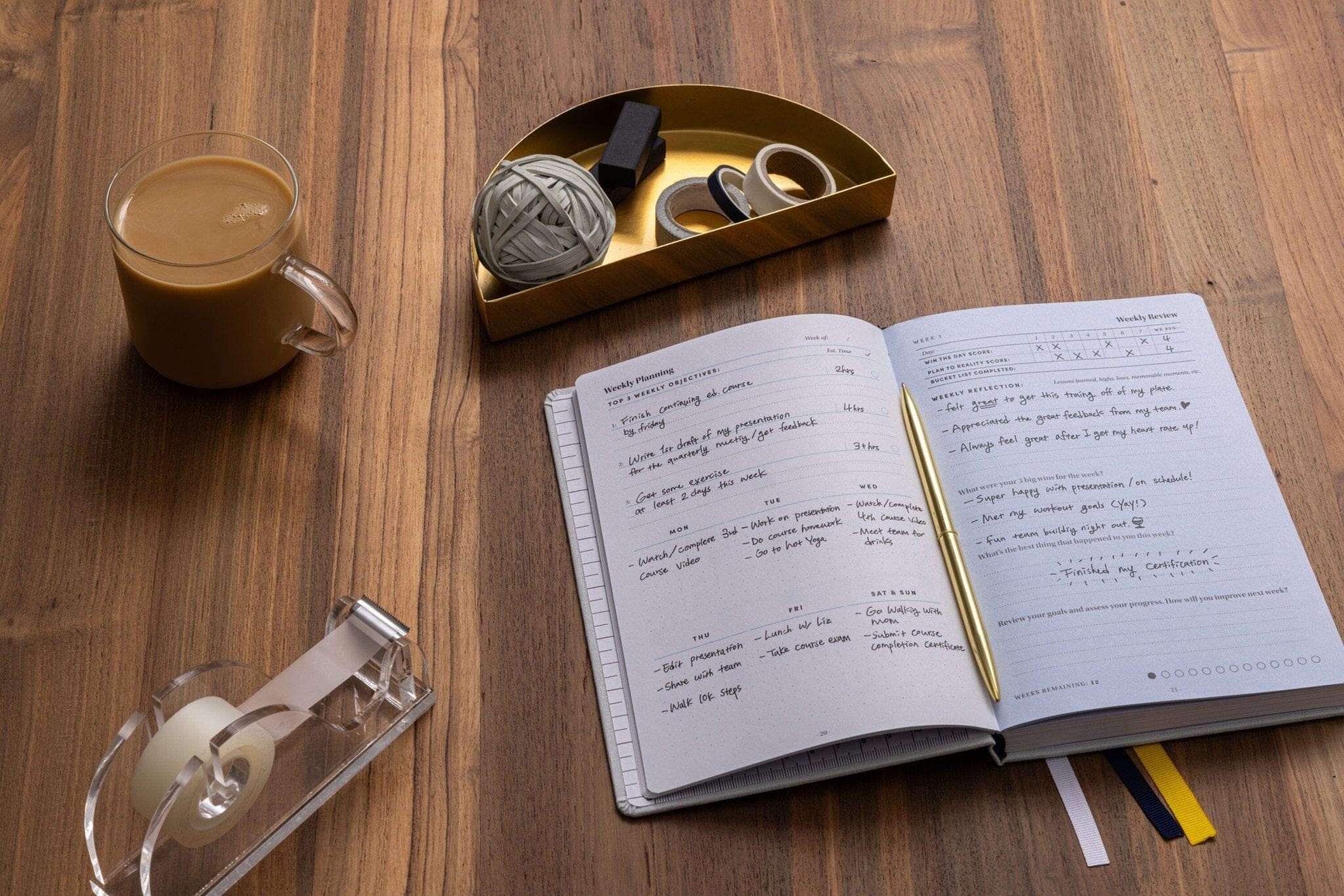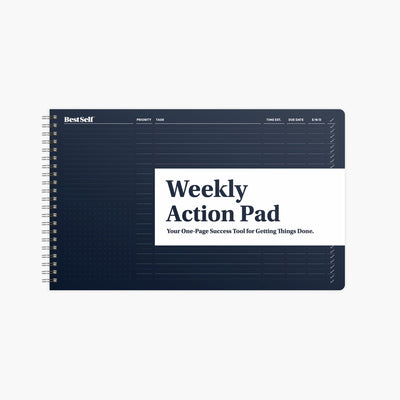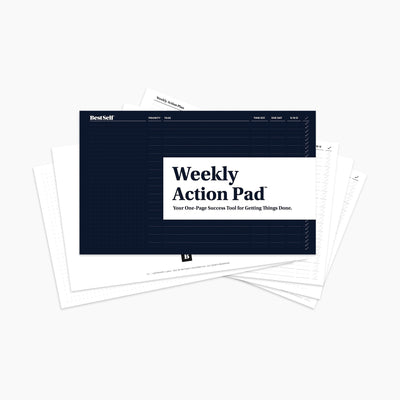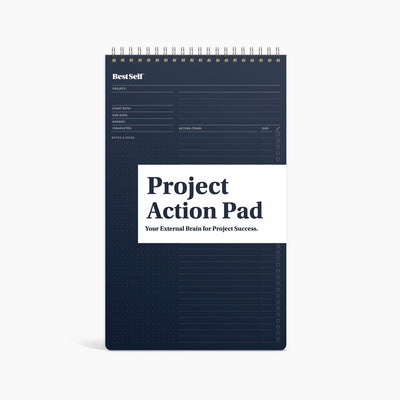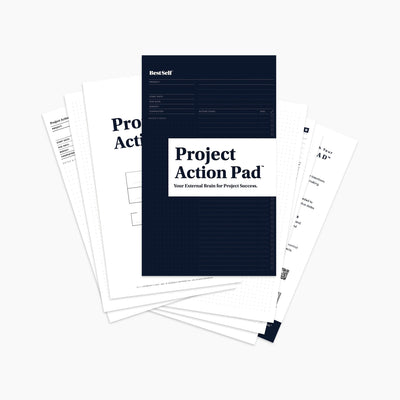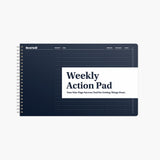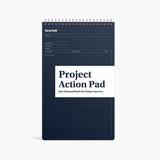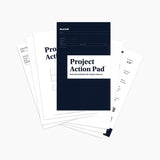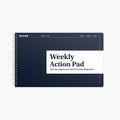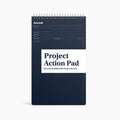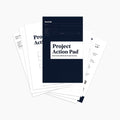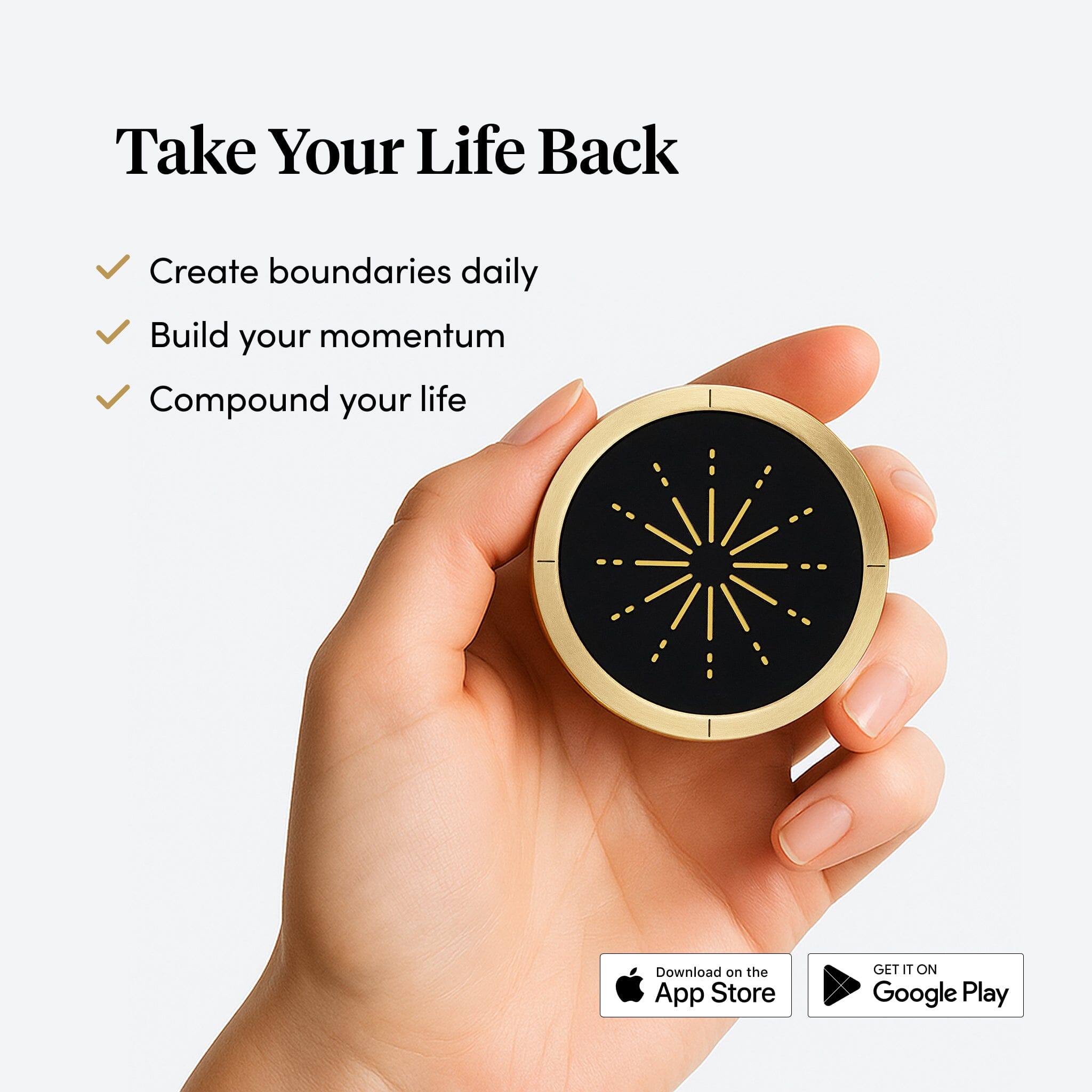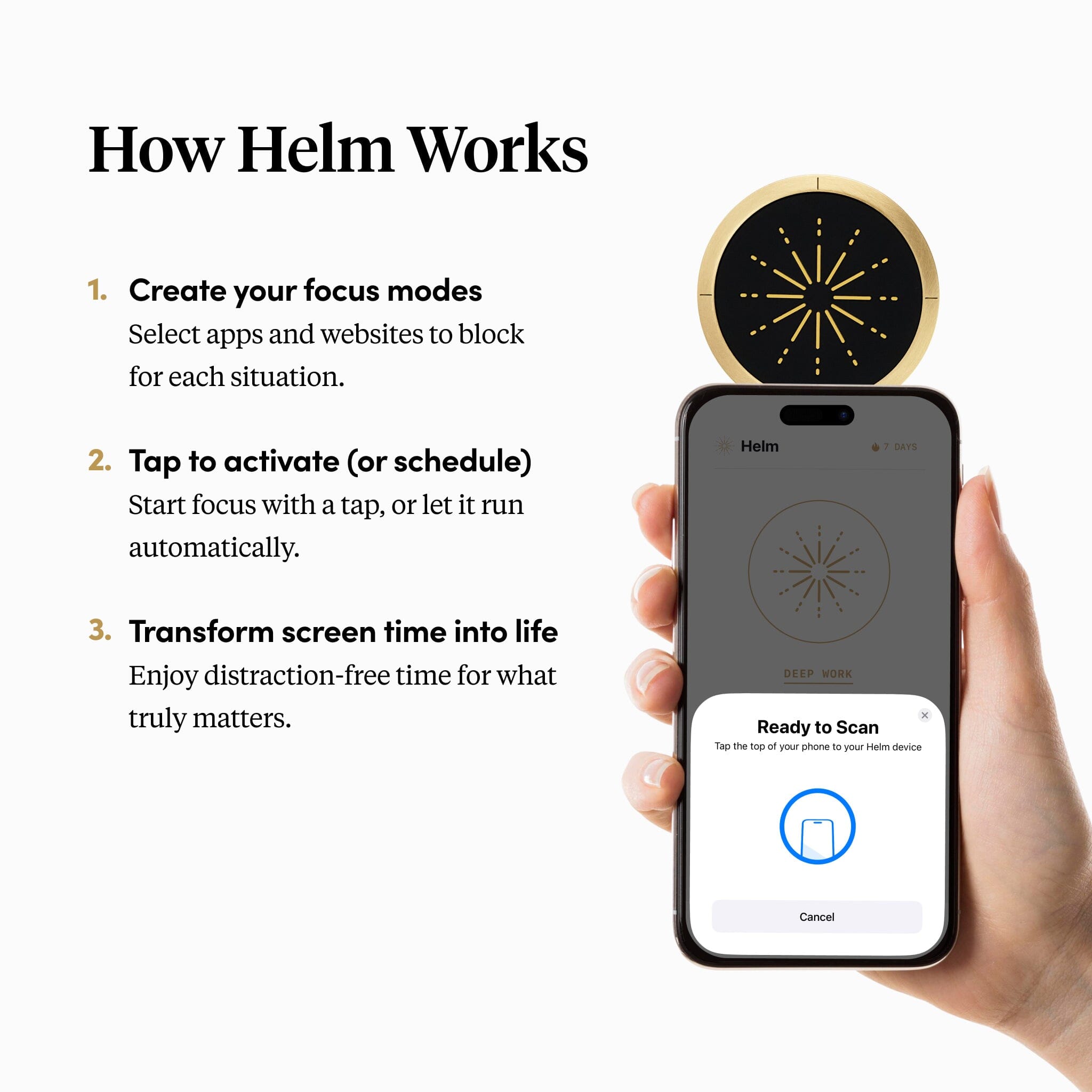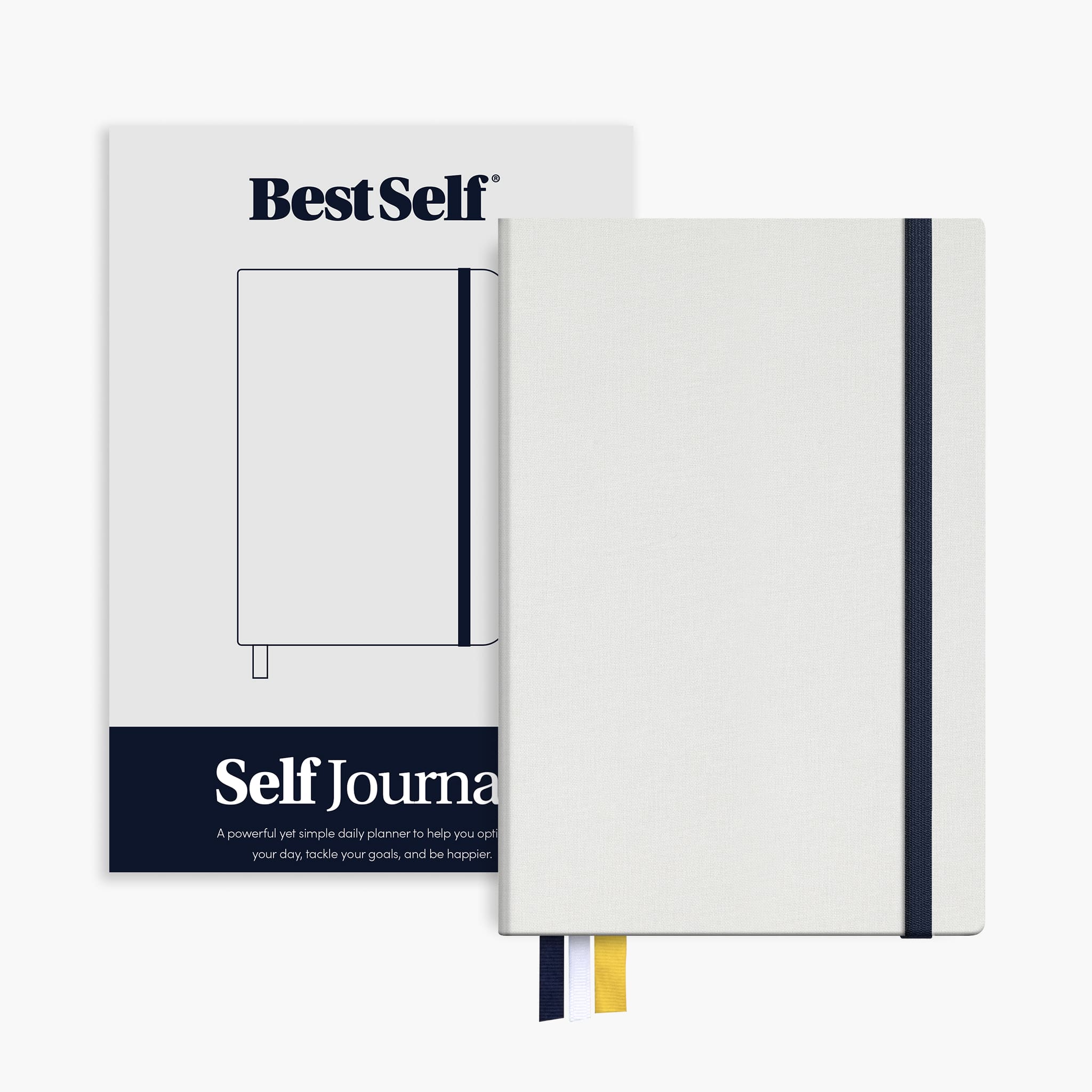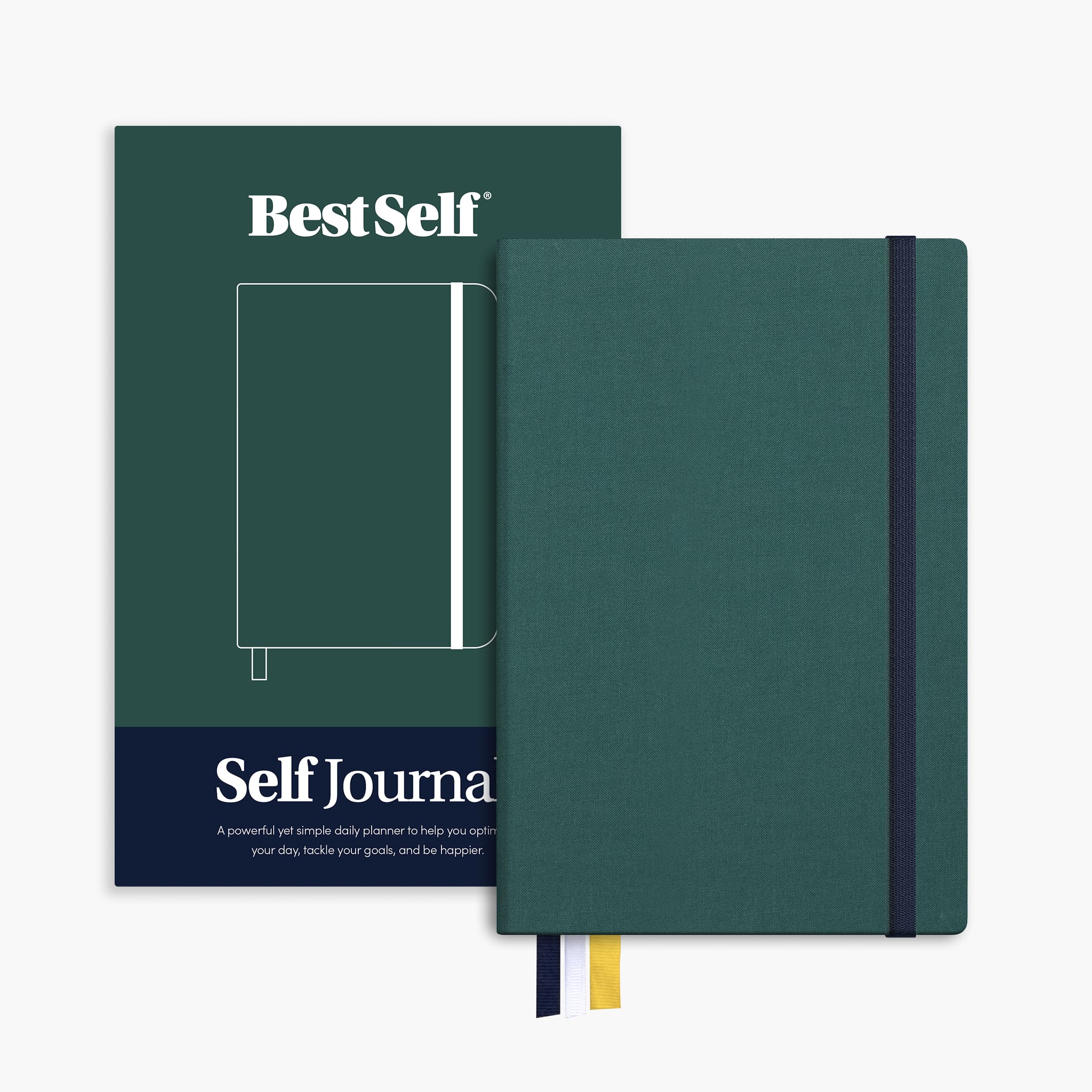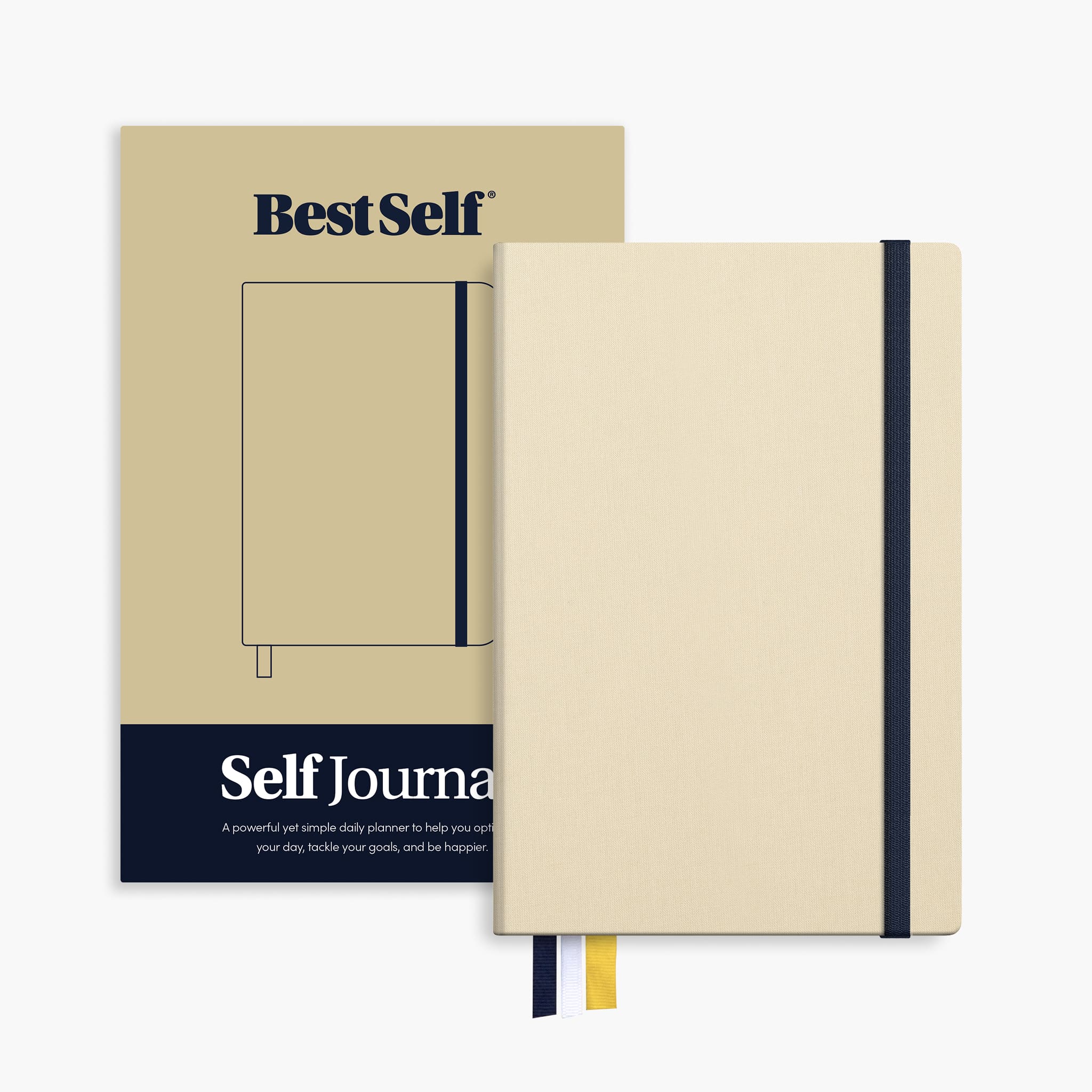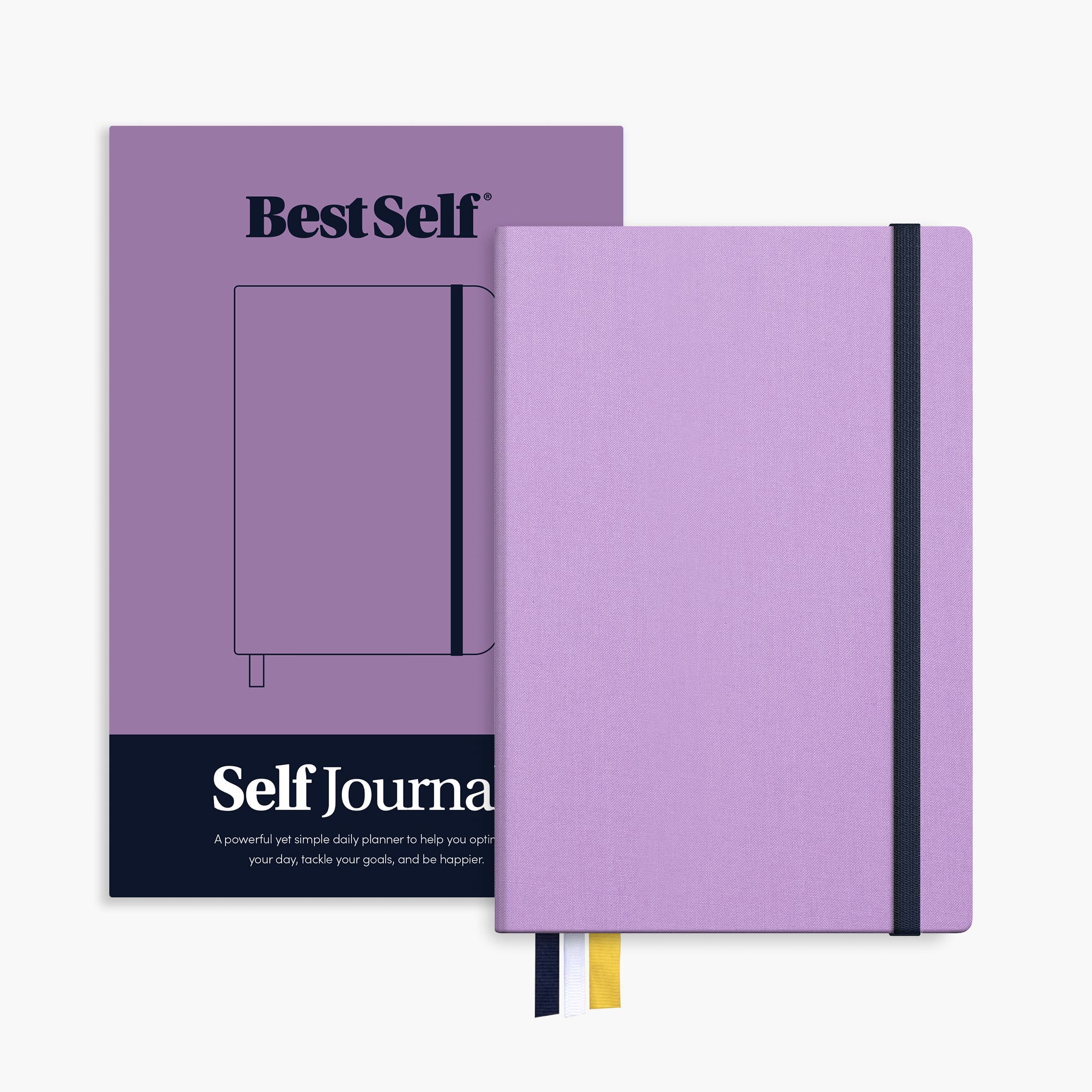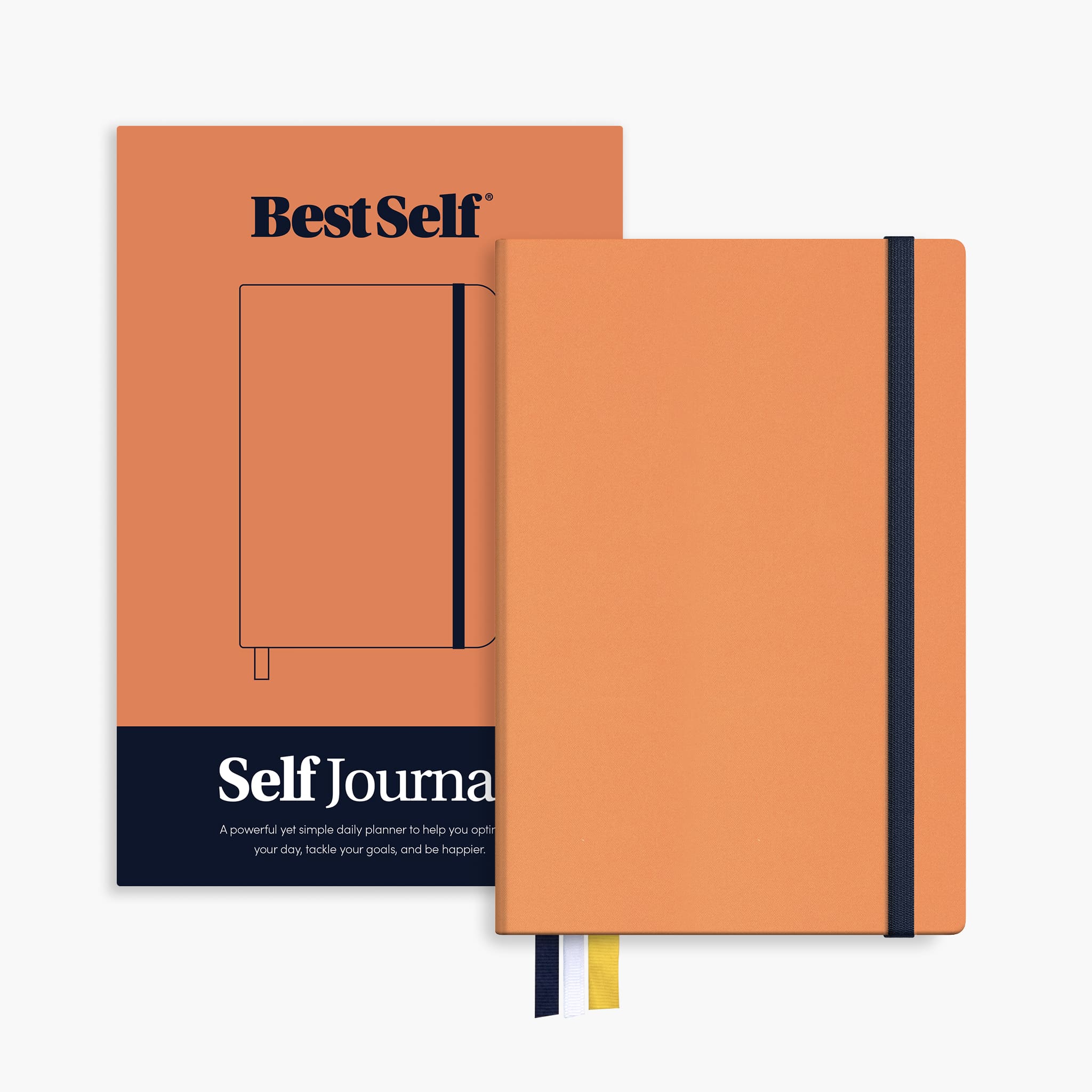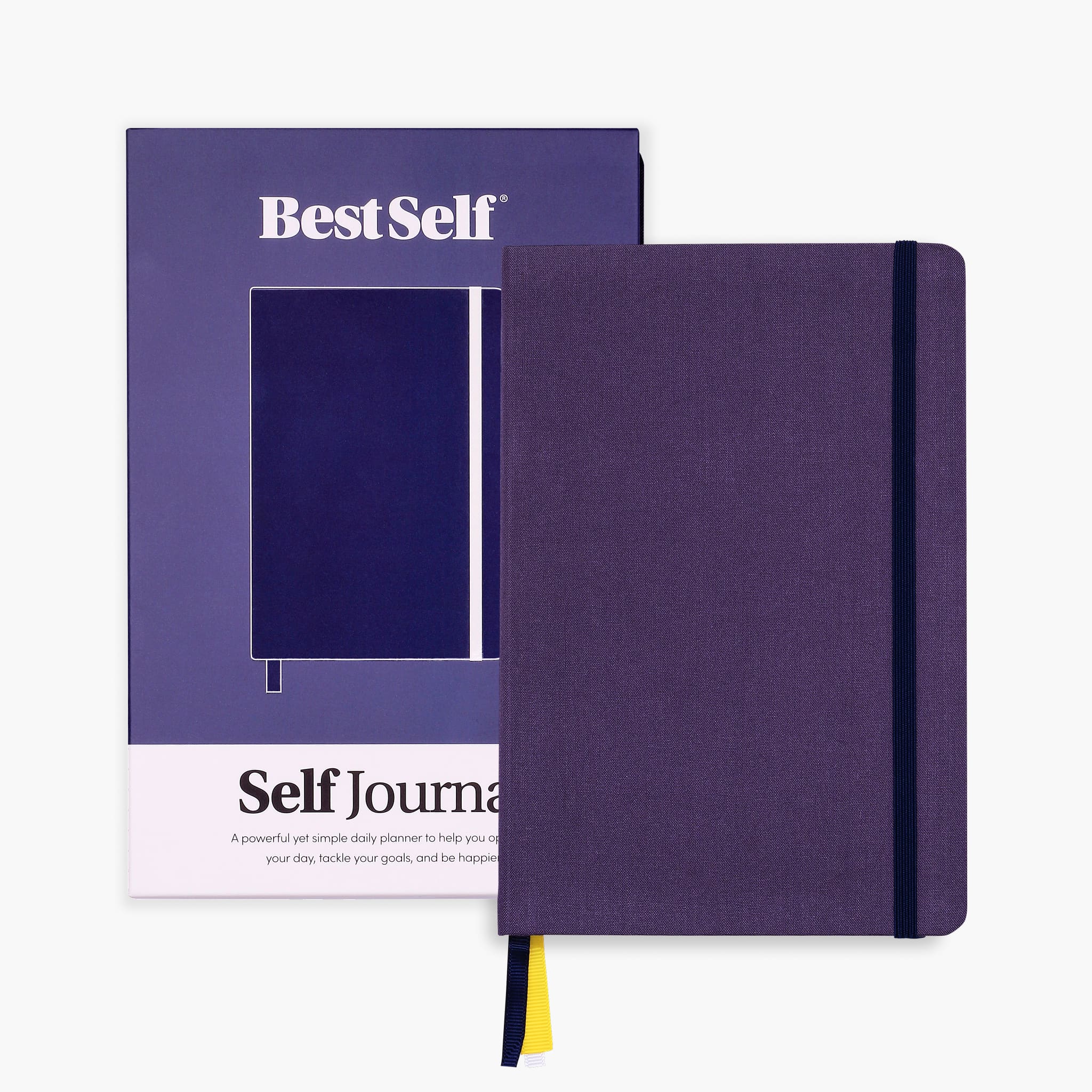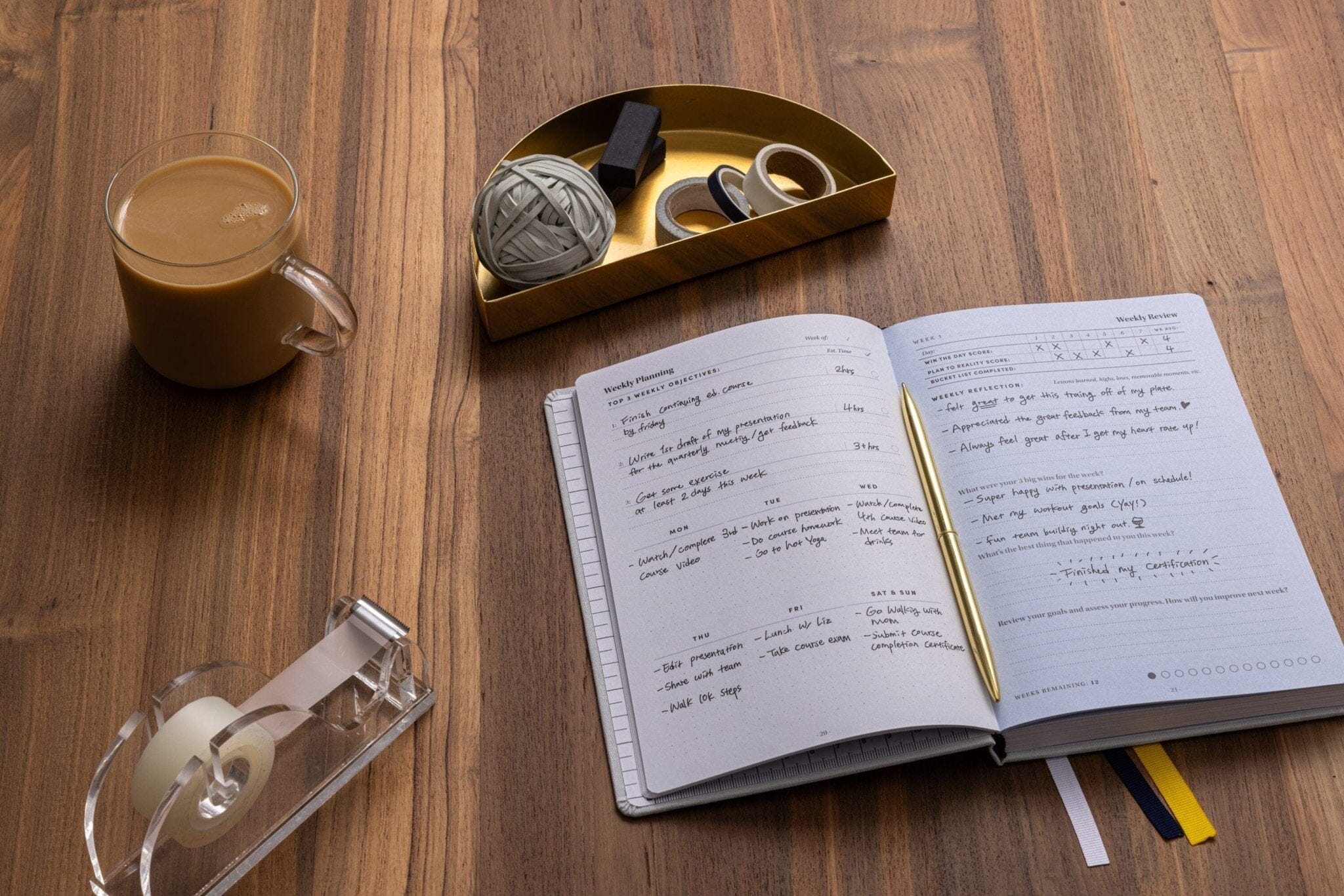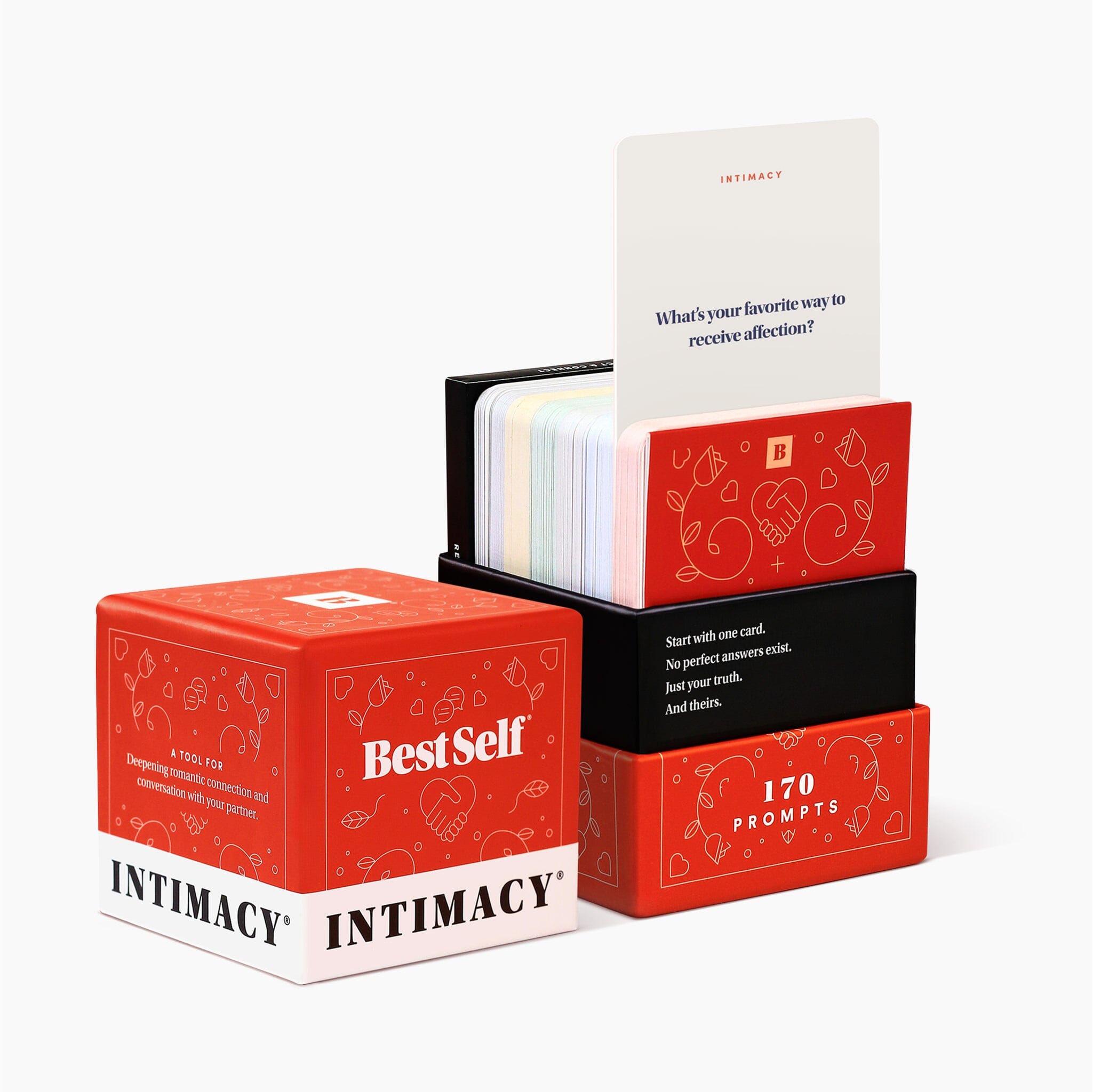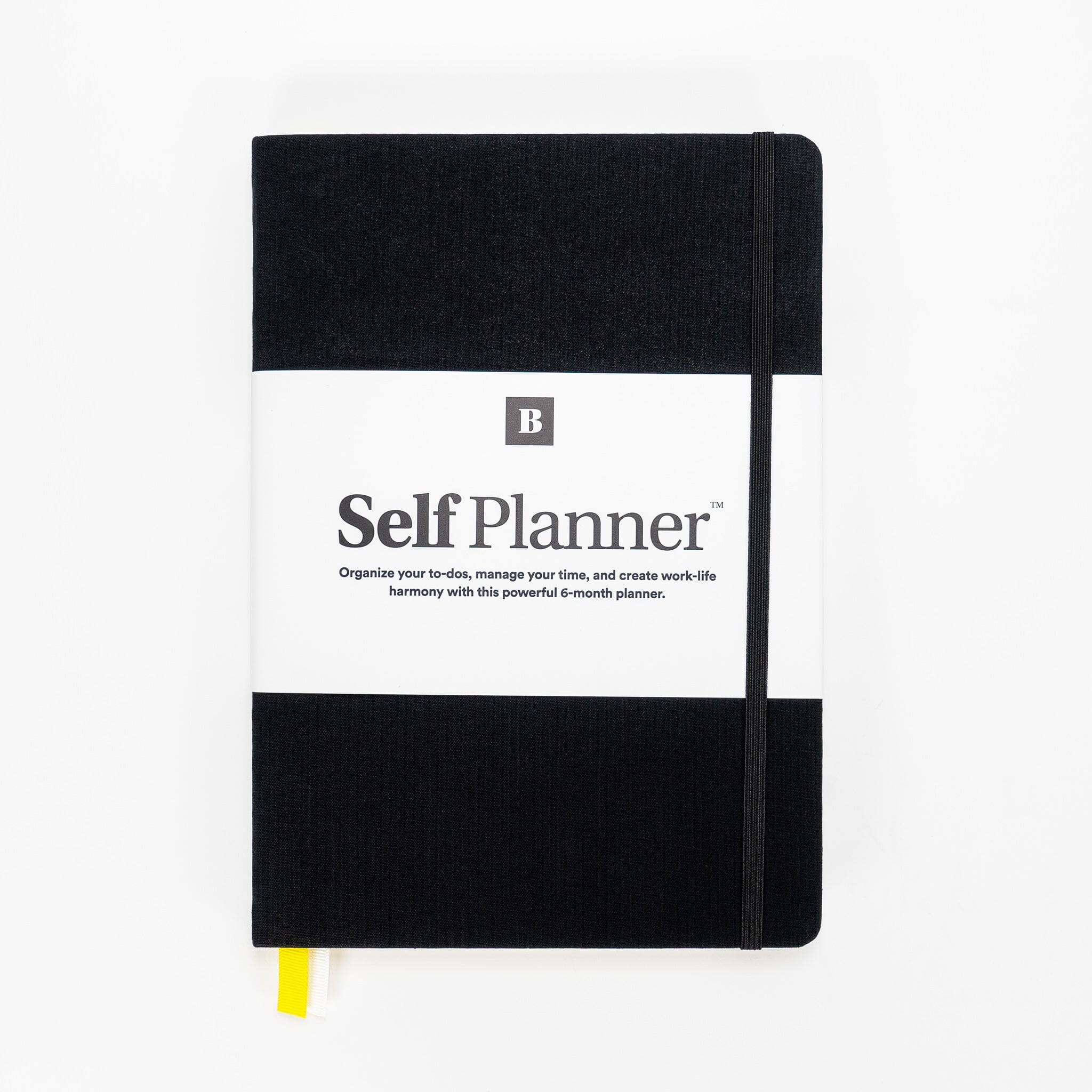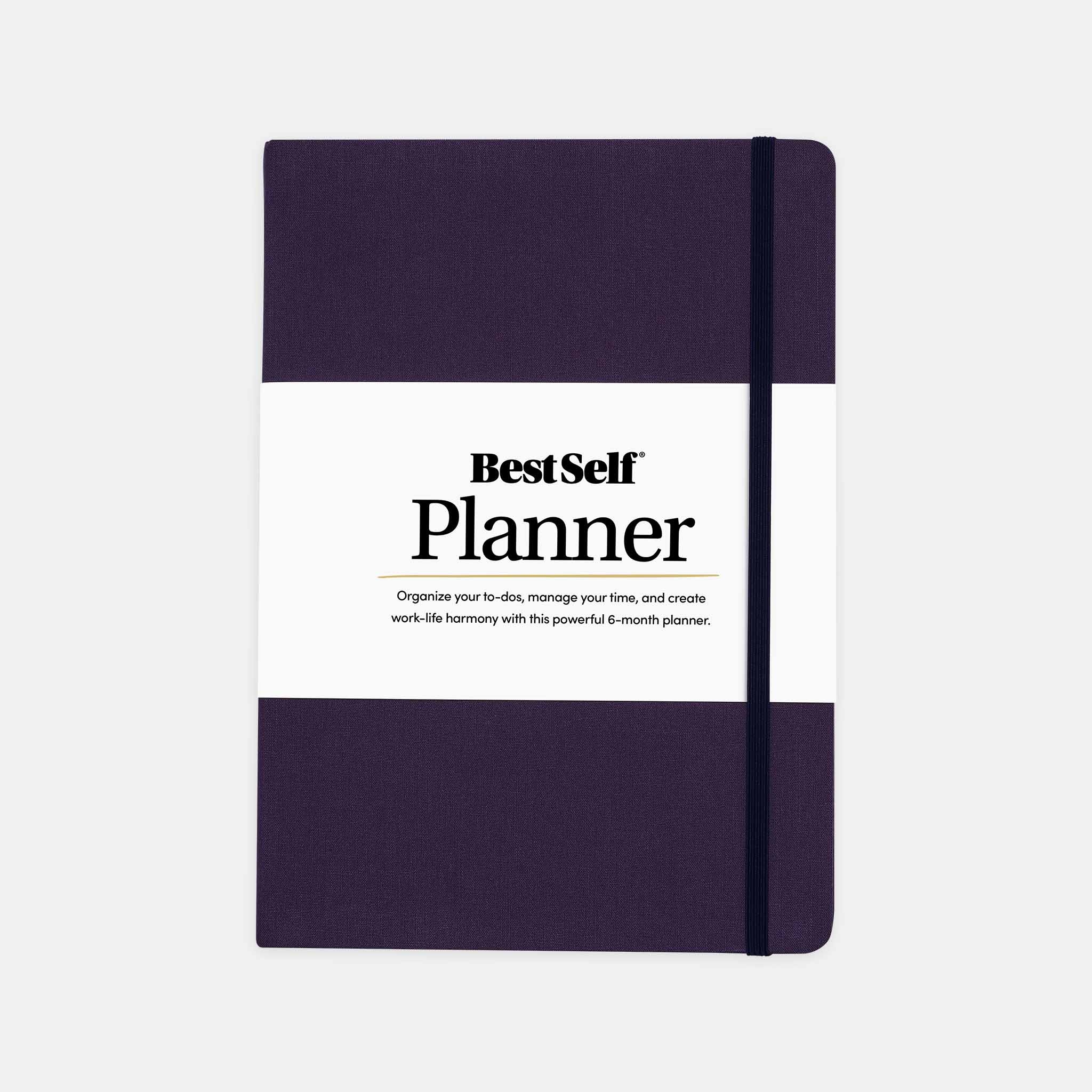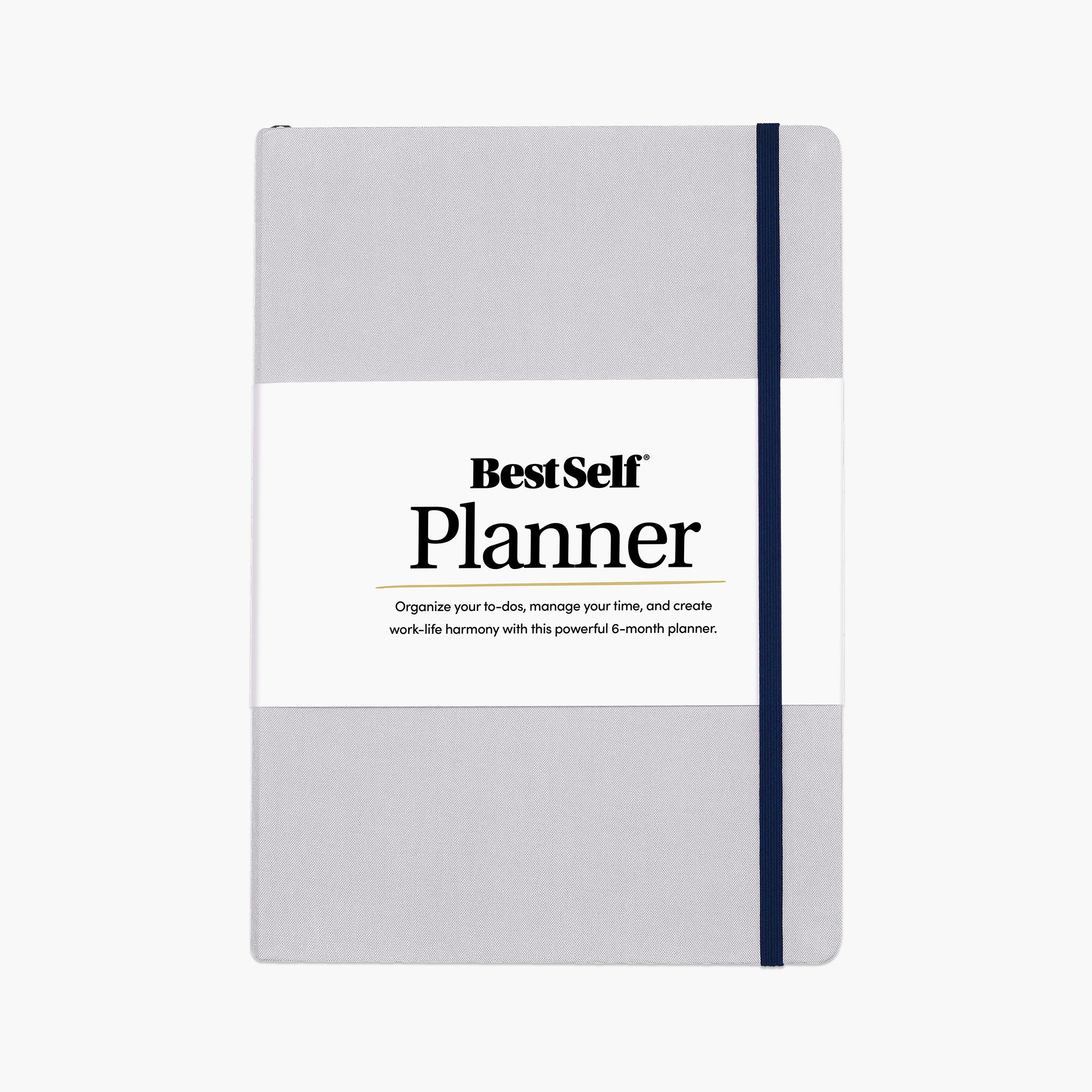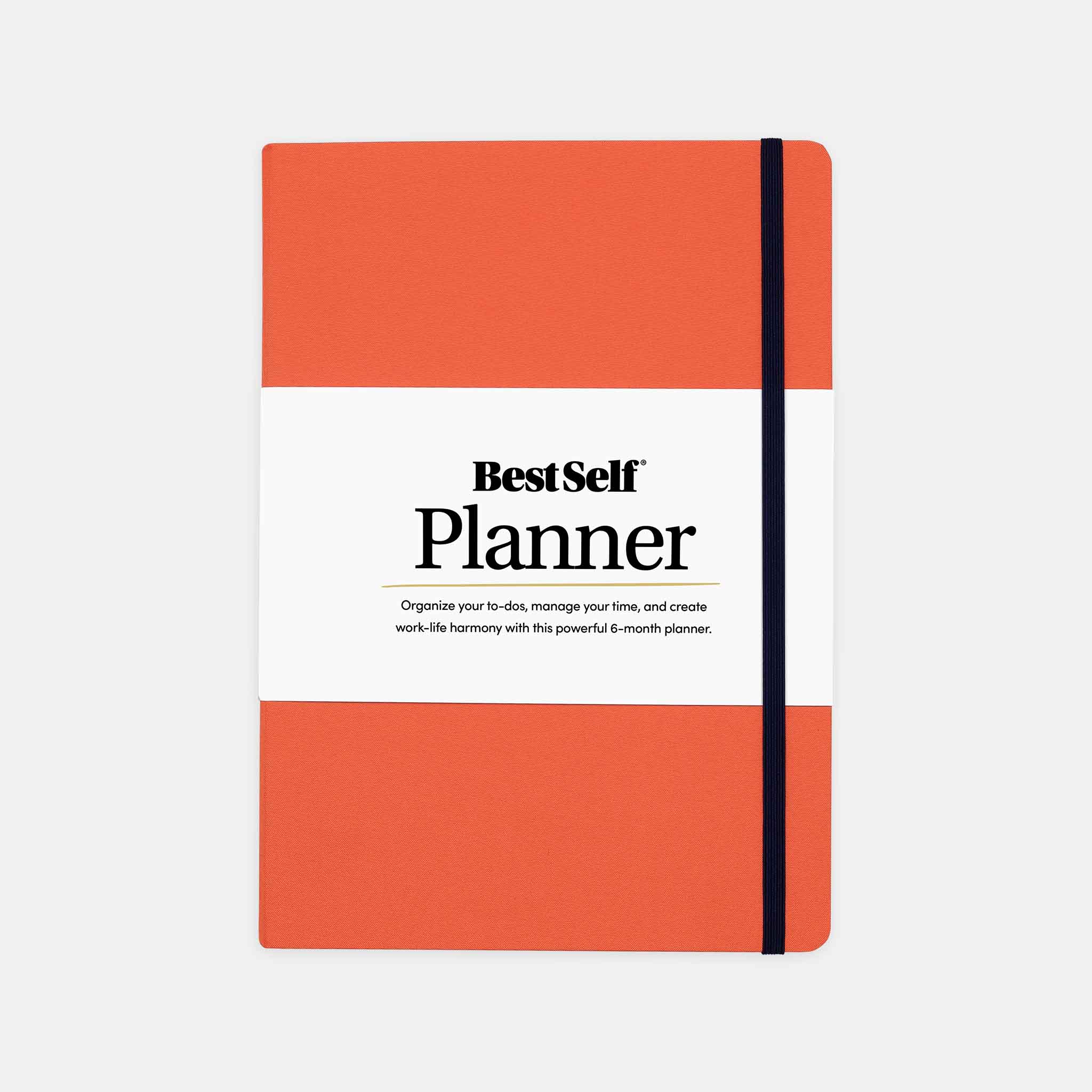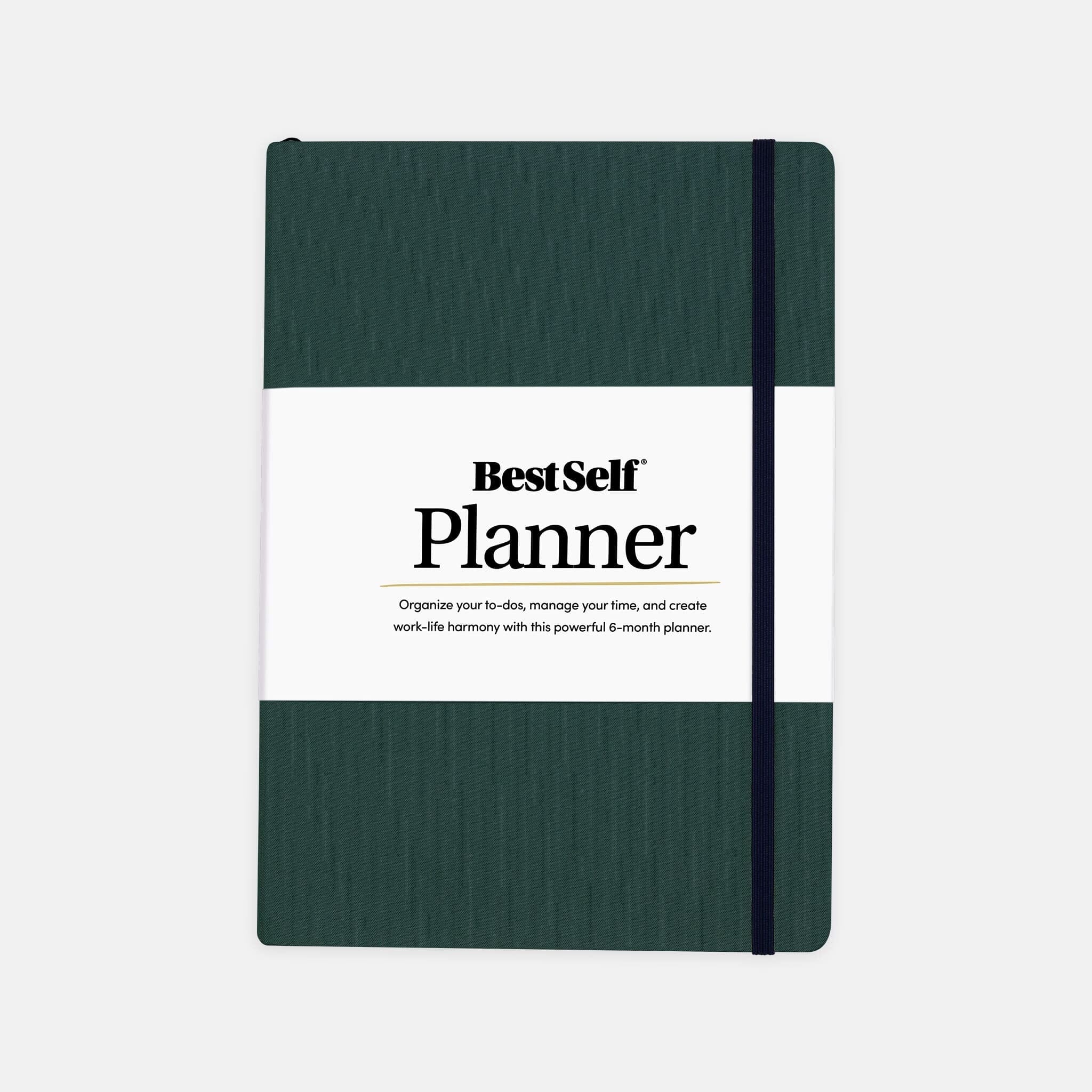Have you ever had those moments when you just feel mentally exhausted? It's a ‘flaw’ of being human. Our brains aren’t so great at storing information and it takes a LOT of bandwidth to hold and remember details.
Ever noticed how genius ideas pop up at the most inappropriate times? You’re in the shower or out on a run when the perfect solution pops into your head. You try to hold onto the thought until you can write it down, but you get distracted or forget. It’s frustrating because you know that one idea can change your life. But it’s not your fault.
That’s why you can’t rely on memory alone. You’ll get mentally exhausted if you do. Instead, you need tools that not only capture the sparks of genius when they show up, but create the environment that makes them appear more frequently.
Something that’s not as easy as it sounds…
When you’re hustling after goals, life gets busy. Ever noticed how preoccupied your mind is?
A lot is happening under the surface. It’s easy to get stuck in thought loops that drain your bandwidth and capacity to think when you have things to remember, tasks to do, problems to solve, decisions to make and emotional clutter to process, If you’re plagued by mental blocks, you won’t perform at your best. And if information overload leads to mental exhaustion, you’ll struggle to get into your flow.
As a result, you’ll lose the competitive edge that comes from creative problem solving, innovation, and imagination.
That’s why top achievers prevent themselves from getting mentally exhausted with ‘external brains’. It’s a practice you can do too.
So if you’re ready to stop feeling mentally exhausted, boost your productivity, and bring your A-game to every task, check out these top five external brains.
Simple to use, they could help you kick mental exhaustion for good.
1. The Project Action Pad
Every high achiever needs a way to manage the multiple projects they’re juggling at once. You need a way to keep the granular details organized so you have the mental clarity to focus on the big picture.
The Project Action Pad helps you map out your project from beginning to end, track your progress, and ensure you’re hitting deadlines. But most importantly, this frees up headspace to think about your project strategically since you know the details are taken care of.
Watch the video above to learn:
- Why an external brain is critical to your success
- How to use the Project Action Pad as an external brain
- How to avoid overwhelm and decision fatigue
- The 7 steps to turn your project into a plan

2. A master to-do list

While notebooks are great for braindumps, you need a to-do list to see everything that's on your plate.
It’s why top performers create a master to-do list of EVERYTHING they need to get done including:
- Work to-dos
- Appointments and meetings
- Reminders
- Personal commitments
- Errands
- Key dates etc.
When creating your master to-do list, your core objective is to write down every single thing you have to do - even the super small stuff such as buying groceries or filing your mail. Constantly keeping your to-do list in the back of your mind is how most people become mentally exhausted.
When you have a comprehensive list (that you can add to), you don’t need to remember. It’s a habit that helps you feel in control of your life because your list ensures you don’t forget. There’s another benefit. With your list written down, can analyze it and scratch off or delegate the items you don’t need to do personally.
Master to-do lists also lead to more work/life harmony - because you’re capturing tasks from all areas of your life.
Master to-do lists boost your productivity too. Cluttered minds get mentally exhausted & that's when mental blocks happen. When there’s too much going on you can’t think straight or decide your next steps. With an external list, you can forget everything else and focus on the one thing you need to do now.
And you can take this one step further with a Weekly Action Plan.
Instead of juggling a master to-do list (which is probably so long it tires you out just looking at it!), your Weekly Action Plan helps you prioritize and identify only those tasks you’ll complete in the next seven days,
Everything else stays parked on your master list where those tasks are out of sight and out of mind - until they become top priorities. It’s a simple practice, but with fewer tasks on your radar, the chances of feeling mentally exhausted falls significantly.
3. A planner
With a to-do list of prioritized tasks, the next step is to plan when you’ll accomplish them - and that’s why you need a planner such as the Self Journal. It helps you design a day that’s aligned with your priorities and keeps the needle moving in the right direction.
You could rely on brain power, but you’ll almost certainly become mentally exhausted, squander time and undercut your performance.
- Without planned deadlines, you'll take longer to do tasks
- With no granular schedule, each time you finish a task you’ll have to decide what to do next
- Without a strategic approach, you'll finish tasks at the wrong time
- You’ll be tempted to focus on low-level tasks
In comparison, a planner lets you plan your day upfront - so you can reduce micro decisions that lead to feeling mentally exhausted and crack on with implementation.
Robust planning makes you more tactical too. You can be strategic about where you place tasks and you can work in breaks and meal times. When you can focus all your energy on implementation and execution, your performance soars.
4. A journal
When you’re hustling towards goals and trying to create a life you’re proud of, your internal dialogue will go into overdrive.
Fears and anxieties will rise to the surface. You’ll have lessons and insights you’ll want to process. You’ll grow in confidence and self-belief and you’ll want to process that too.
A journal works as an external brain to help you process all those conflicting thoughts - so you can get the recurring dialogues out of your head and onto paper. When you’re pushing your boundaries and stepping out of your comfort zone the doubts kick in and if you’re not careful, you’ll uncover an armful of reasons why you shouldn’t act.
Journaling helps you work through the mental fog so you can get clear on your fears and concerns. This type of writing also helps you uncover thoughts that lurk under the radar. The more you write and clear out the clutter, the more profound the insights that bubble up become. This practice differs from the random idea dumps captured in your notebook. With your mind on paper, you can reflect on your thinking, challenge your beliefs, and get the mental clarity that helps you be your best.
- Brainstorm ideas. You can’t action everything immediately, but the thought you had earlier could provide the breakthrough you need when problem-solving in the future
- Capture your raw ideas and then pull the threads to see where they lead. A fleeting thought can quickly turn into a new project or innovative solution.
- Capture to-dos and other important details - so you don’t waste bandwidth remembering
- Jot down insights from conversations - so you can turn insights into tangible benefits in your life
- Explore a decision you need to make
Write about a challenging experience from your past
- Journal about a situation that taught you a lesson
5. Your habits

Remember how draining it was when you first learned to drive a car? It was a new skill so you had to focus intently on every detail, and that was tiring. But as you got more skilled and confident, driving became second nature and now, you drive on autopilot and muscle memory.
That’s what makes learned behaviors and habits such powerful ways to stop feeling mentally exhausted.
Free up headspace to focus on the important things by using routines.
It’s one of the reasons morning routines are so powerful. When you’re in your groove, you follow through a sequence of events without thinking about the order.
What habits could you turn into external brains to help you become more creative and productive?
Give yourself a competitive edge
It’s a documented fact that human attention span is declining. We're constantly overwhelmed with so much information that we've gotten used to being mentally exhausted.
High performers know they need to push back against this trend.
They need to be proactive and consciously take steps to prevent becoming mentally exhausted so they can think innovatively and solve problems creatively - because these are the skills that will help you win in life.
External brains are among the simplest, yet most powerful tools you can use to stop feeling mentally exhausted & gain mental clarity.
It’s a simple decision that could empower you to uncover the ideas that will change your world.
How could you use external brains to transform your life?

